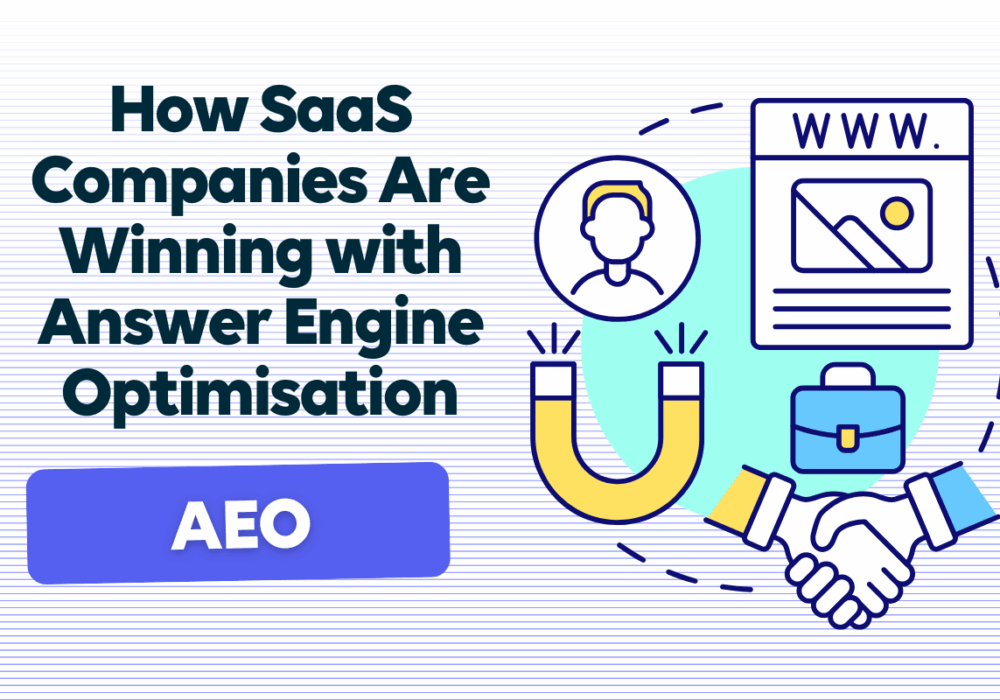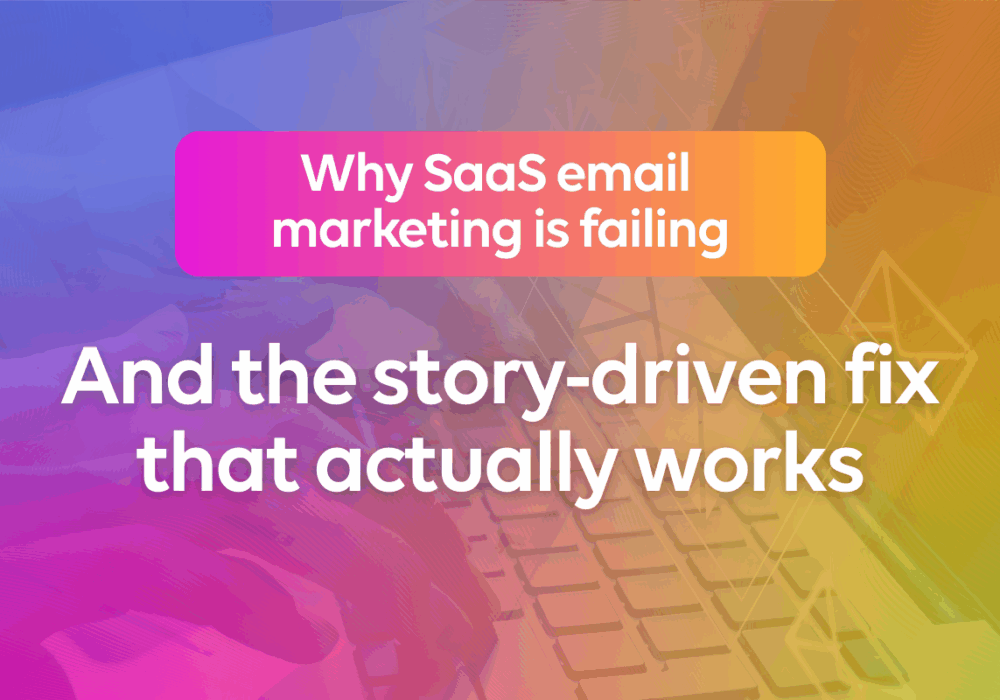Will 2018 be a major turning point in marketing?
4th April 2018
 The last 60 years in marketing in less than 200 words!
The last 60 years in marketing in less than 200 words!
From the birth of modern advertising and marketing on 1950s Madison Avenue, right through to the early 90s, visual media campaigning existed chiefly on TV and offline. Big brands used TV and press and billboard advertising, local traders and services used the Yellow Pages or similar directories, and B2B marketers sent direct mailshots, faxes (remember those!) and attended events and exhibited at trade shows.
The mid and late 90s saw the world wide web begin to transform the media landscape as websites, email and search engines – channels we take for granted these days – created a paradigm shift. Conventional advertising was disrupted as the new kids on the block set about redesigning how marketing is done.
Since then, social media, in particular Facebook and Twitter, have provided the impetus for another shift by creating a focus on ‘inbound marketing’.
The introduction of the smartphone and the resulting app economy sent marketers in yet new directions, driving mobile to be the dominant channel that it is today. It’s no coincidence that the world’s two biggest companies by market cap. are the leaders in mobile and search – Apple and Alphabet, the Google parent company.
Tired channels, consumer fatigue and demographic change
Lead generation email marketing (to cold lists from list brokers of course!) has built up something of its own ecosystem, and ‘spamming’ (within the rules) is now a highly refined process.
There are very strong perceptions that social media and Google are getting more and more intrusive. With millennials now forming a major proportion of the working age population, values, attitudes and opinions are also shifting.
If marketers haven’t quite been able to over-milk the cow, it’s not for lack of trying. Unfortunately, now it seems like it’s all become a bit like fishing with an ineffective lure; getting consumers to take the bait is becoming increasingly difficult.
In short, it’s quite clear that channels are becoming tired. Consumers and B2B buyers are becoming fatigued. And the less tolerant attitude of millennials means they are largely unimpressed, and it’s all leading marketing to stagnate.
That’s how we got here, but what’s happening now?
Data is widely hailed as the new oil. It’s an analogy that fits well with the general trend for using terminology related to geological exploration to describe data. Conceptual ideas such as ‘data mining’ and ‘drilling down’ have been around for some time, so the idea that data is the ‘new’ oil may not actually be all that new!
However old the idea may be, the process of tapping the well and bringing this new oil to the surface is strewn with obstacles. Like recovering oil from deep ocean wells, it also carries significant challenge and risk.
Factors shaping the use of the new oil
The new oil – or more correctly, controlling how the new oil is used – could be at the heart of a rapid change in marketing:
- General Data Protection Regulations (GDPR) is coming into force across the EU, but with a global impact, affecting how companies worldwide gather, store, use, manage and share EU citizen data.
- GDPR will have a significant impact on what marketers can do with data. This means no more cold emailing, or emailing existing contacts without consent.
- Whilst it is yet still to be clarified, GDPR may bring an end to digital marketing practices that rely on customer data held in cookies, such as remarketing on Google Ads.
- Facebook’s recent issues are highlighting privacy concerns. This is turning some away from advertising on Facebook and is certainly turning users off Facebook. The charge is that Facebook has been playing fast and loose, making it up as it went along, and its practices are unethical.
- It feels like we’ve been here before, but it’s different this time around. This time it has become highly politicised as Facebook data may have been used to influence the 2017 US presidential election and the UK Brexit referendum. In short, Facebook is becoming toxic. Does your brand want to be associated with Facebook at the moment?
- To demonstrate it is listening and acting, as part of a major overhaul of its privacy efforts, Facebook is reducing the amount of user data that advertisers can use. The company plans to halt the use of data from third-party aggregators across Facebook, including Experian and Oracle.
- Also, as part of its efforts to deflect and reduce criticism and to prevent an exodus from the platform, Facebook also announced it is rolling out additional privacy tools for users.
- The rise in popularity of ad blocking extensions which plug in to browsers such as Chrome, Safari, Firefox, Edge and Android.
- Moves to disrupt the cookie-based online advertising practice of presenting ads based on websites previously visited. Intelligent Tracking Prevention built into Safari 11 stops your use of the web from being tracked through cookies dropped onto your device as you surf the web.
- Google is starting to feel the pressure and is likely to be next. It’s hard to imagine people en masse stopping using Google anytime soon, or Google Ads drying up, but contagion spreads.
Anti-trust and compliance remain strong possibilities
Despite Facebook’s seeming contrition, to those familiar with US government action when faced with issues of such national – and in this case global importance – two examples may suggest where this situation with the use of data is leading.
- Firstly, in the tech sector Microsoft was forced to unbundle Internet Explorer from Windows operating systems in 2001. Bundling them together is alleged to have been responsible for Microsoft’s victory in the browser wars as every Windows user had a copy of Internet Explorer, giving Microsoft an unfair advantage.
- Secondly, (and for no other reason than it is about the ‘old’ oil) the action in 1911 to prevent Standard Oil (the company that created the Exxon and Esso oil brands among others and vast wealth for John D. Rockefeller along the way) from monopolizing the oil business.
Anti-trust is one thing, but a stronger regulatory framework may also be part of the solution. The era of light touch regulation, which was in part responsible for malpractice in the financial services sector and created the conditions for the credit crunch and the ensuing global economic recession, is now over.
It’s been replaced by a new approach. When businesses fail to act, or are rendered powerless to do so because commercial considerations conflict with ethics, robust regulation and compliance results.
The consumer perspective
At a high level, data privacy is a principle and consumers have a right to demand it. But the day-to-day perspective is best summarised in one simple and emotional point of view: Consumers are getting fed up…
- Does buying a one-off product automatically mean you get added to a marketing mailing list and emailed (spammed)?
- Do you want to be followed around by websites you’ve visited once?
- Do you want your email address uploaded to Facebook so you can be sent ads?
- Do you want Facebook and Google holding all this data on you?
Increasingly, the resounding answer is NO.
So, what do marketers do?
With the development of ‘inbound marketing’ and ‘permission marketing’ came a new approach in marketing. Let’s only talk to people that are interested in hearing from us and that give us their permission. Let’s create content that educates people and paints us as trustworthy, let’s connect and engage on social.
Marketers that are playing the long game have done this for the last decade and are seeing great results – they haven’t been punished when Google updates its algorithm, cold email marketing is outlawed or one platform gets involved with the wrong company that sways a US election.
However, for other organisations marketing has been treated as a short-term, quick win, growth hacking opportunity. They’ve been following some imaginary ‘Cheaters Guide to Marketing’; buy or steal a list and email bomb people; use sneaky Google features to target people; make sure we are remarketing to anyone that’s ever mentioned our name; create clickbait worthy content that cheats on its promise.
The predictions business is often a risky one. But, to hang it all out here, it is practices like these that have turned people off and why 2018 needs be the start of a change in digital marketing.
Adapt and survive: Build a solid trusting customer base
What to do now?
- Adopt a long-term view
- Build high quality, clear, trustworthy informative websites
- Great content marketing – high quality, consistent, thought leadership
- Content-first approach to SEO
- Permission based email marketing – give people a reason to opt in
- If you’re using social, engage, push out engaging content
- Think about how to extend digital campaigns with direct mail
And for all of you companies that have been playing the long game?
Keep up the great work. You are not alone.
Stay on top of the marketing game, with Xander Marketing
However marketing changes Xander Marketing is there to guide you. Xander Marketing works in partnership with SaaS businesses around the world to support growth through new customer acquisition, increasing leads, generating more website traffic and raising industry awareness. If you lack the time, resource or know how to undertake marketing then get in touch and book your free 30 minute consultation.


 The last 60 years in marketing in less than 200 words!
The last 60 years in marketing in less than 200 words!


